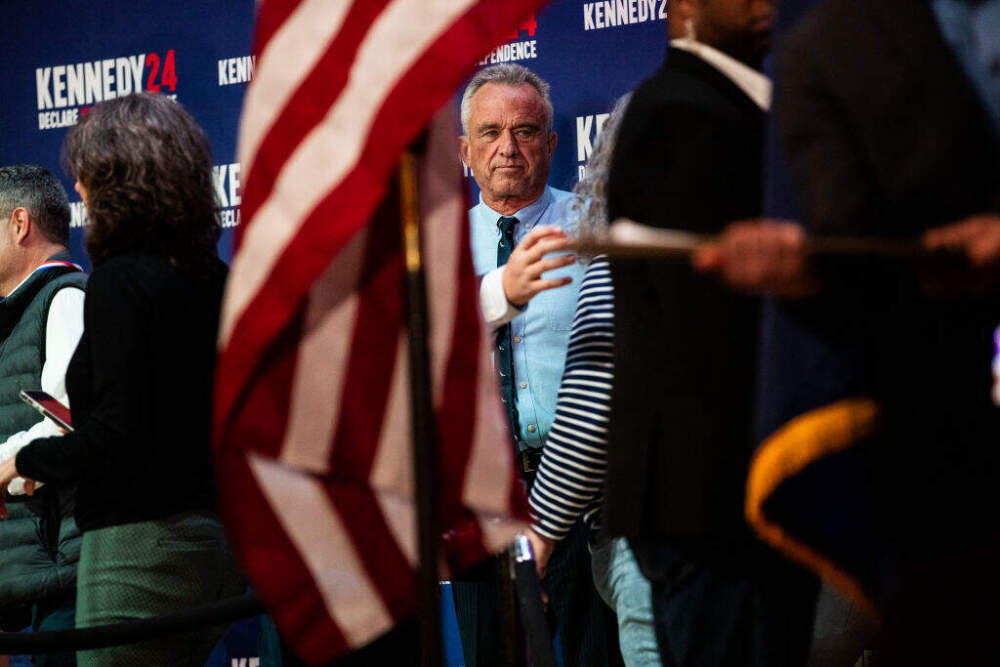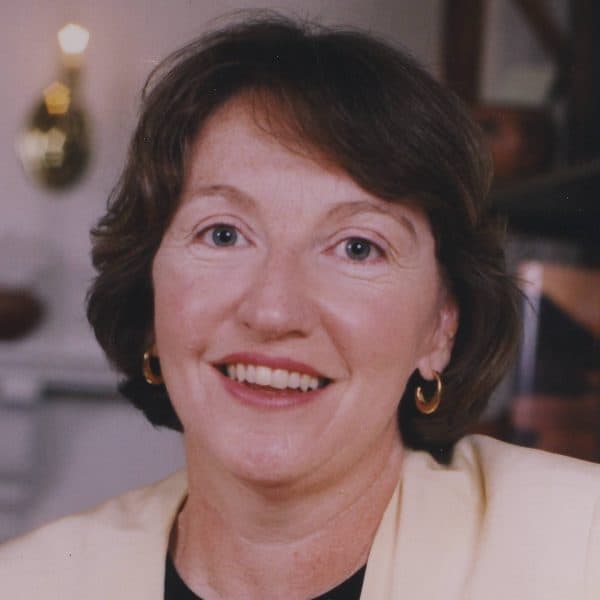Advertisement
Commentary
Robert F. Kennedy Jr. is no Jack — or Bobby — Kennedy

Eunice Kennedy Shriver had good reason to tell her kids to stay away from their cousin Bobby.
In 1970, Robert F. Kennedy Jr. was the ringleader of a pack of spoiled, rich kids who called themselves the Hyannis Port Terrors while vandalizing cars, stealing boats and experimenting with drugs. Eunice’s son, Bobby, was arrested at 16 for smoking weed with RFK Jr.
Bobby Shriver learned his lesson. Bobby Kennedy went on to sample much harder drugs with cousins who had far less formidable mothers than Eunice. “My Aunt Eunice yanked Bobby Shriver away from us before you could say ‘straight and narrow,’” Christopher Kennedy Lawford recalled in a memoir of his own drug use with and without his cousin RFK Jr.
Now that the unhinged conspiracy theorist is exploiting the family’s political legacy in his delusional bid for the White House, Eunice’s children are issuing their own warning about the namesake of the late Senator Robert F. Kennedy of New York.
“My cousin’s Super Bowl ad used our uncle’s faces — and my Mother’s,” Bobby Shriver wrote on X, the social media platform, after he saw the ad that substituted Robert F. Kennedy Jr.’s face for the face of John F. Kennedy in an iconic TV ad from the 1960 presidential campaign. “She would be appalled by his deadly health care views. Respect for science, vaccines, & health care equity were in her DNA.”
Added Mark Shriver on X: “My brother is right.”
Never mind RFK Jr.’s demurral that he had nothing to do with the $7 million ad paid for by the American Values super PAC. He could hardly say otherwise since it is illegal for campaigns to coordinate with independent political action committees. The Democratic National Committee just filed a complaint with the Federal Elections Commission accusing him of coordinating with the very same super PAC in a $15 million effort to collect signatures for state ballot access.
RFK Jr. has been bludgeoning audiences with duplicitous references to his uncle and his father since he hit the hustings. I stopped counting at a dozen such name drops when I heard him bloviating behind a barn in North Sandwich, New Hampshire, last summer.
The Super Bowl ad is only the most recent attempt to conflate his candidacy with the legacy of his father and his uncle, both of whom would be appalled by his well-documented assertions that vaccines cause autism, COVID was engineered to target whites and Blacks and spare Jews and Chinese people, antidepressants trigger school shootings, chemicals in the water supply cause gender dysphoria and the CIA definitely killed President Kennedy in 1963, and possibly his father during the presidential campaign in 1968.
RFK Jr. has been bludgeoning audiences with duplicitous references to his uncle and his father since he hit the hustings.
The contempt for science that characterizes what will be RFK Jr.’s blessedly brief turn on the political stage is the antithesis of the deep regard for research and empirical data that fueled the lives of the Kennedys who came before him. It was Eunice Kennedy Shriver who convinced President Kennedy in 1962 to establish the National Institute for Child Health and Human Development (NICHD), which today bears her name.
President Kennedy had been skeptical, asking why he should invite the ire of National Institute for Health (NIH) officials by creating a new institute that some thought unnecessary. For Eunice, the answer was obvious: maternal and pediatric medical research promised breakthroughs for all children.
In the more than 60 years since, the NICHD has incubated critical neonatal research. Hyaline membrane disease, for instance, was the most common cause of death among premature infants when JFK signed the NICHD into law. It claimed 25,000 lives a year in the United States, including the life of the president’s son Patrick Bouvier Kennedy, who died 39 hours after he was born five and a half weeks premature on August 7, 1963. Today, because of the work of the NICHD, few babies die of that lung condition.
In marking its achievements over more than half a century, the NICHD cited research that identified “a bacterium that was once the leading cause of meningitis (infection of the covering of the brain and spinal cord) and acquired intellectual disability in young children.” Since Food and Drug Administration approval during the 1980s, the vaccine has saved thousands of lives, spared many more children lifelong disability and helped to avert billions in medical costs.
The NICHD-developed technology that made the Hib vaccine possible was also used to create FDA-approved vaccines against Streptococcus pneumoniae, which causes meningitis in young children and the elderly. Rates of invasive pneumococcal disease among children younger than 5 years old have dropped by more than 90% since 2000, the year when the first vaccine was introduced,” according to the Centers for Disease Control and Prevention.
Listen to Eunice Kennedy Shriver, kids. Stay away from Bobby Kennedy Jr. Nothing good can come from it.
